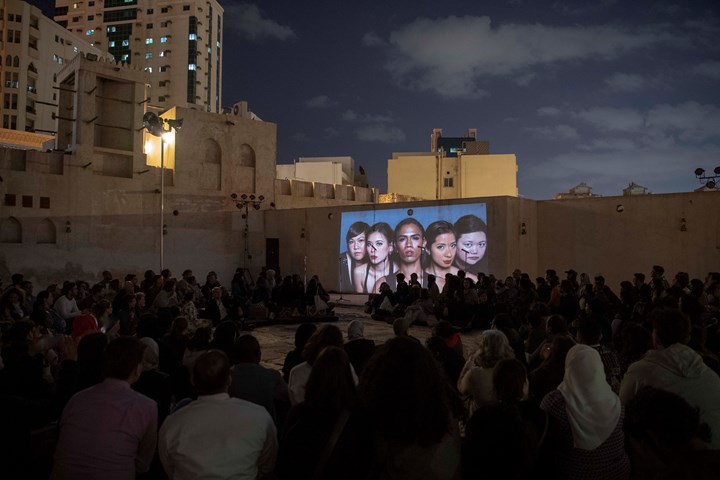


And then we’re not lifelong friends after that. With at least a few of the people, especially the ones that I hadn’t known before, I would have some little interaction with them at the beginning of the process and then a little back and forth while we’re finishing everything up. A lot of these collaborations don’t necessarily equate to a lasting friendship or anything like that. We have only spoken briefly on the phone. I met his son there, but I had never met Neil, and to this day, I never met Neil.
#Into the echo chamber lyrics mac
At one point I heard that Neil had joined Fleetwood Mac and suddenly I remembered the Crowded House and Split Enz stuff.

You also had no prior connection with Neil Finn, right? So he had the “down with the ship” part I had to come up with the rest of it, and it turned out to be a fun little romp. I got it down to two songs and couldn’t quite decide which one until somebody else was listening to me reviewing this stuff and said that they really enjoyed that particular riff, which is a famous sample called “Dick Tracy.” A few people have written completely other songs on top of that riff. I was sitting in with the Roots on “The Tonight Show” and the musical guest was Weezer, and I thought, I’ve got nothing to lose, so I saw Rivers in the hall and I said, “You want to collaborate?” And he said okay, then sent me 20 things - the guy’s got so many ideas. They were, in some ways, founders of the whole emo thing. I was always fascinated with Weezer’s approach to things. Rivers Cuomo, you had met at “The Tonight Show.” So I essentially came up with the chorus to balance out the message of the song and make it a little less depressing. Because it was just talking about how sad people are, and I thought there has to be a little sweet with the sour. Adrian had essentially an idea which became like the verses of the song, but we agreed that that that idea wasn’t enough. As with most of the collaborations, I would get more than one idea from him, and it would be my option which one to work on. That was kind of like a happy little coincidence, that we’re getting to work together on the Bowie thing. And we’d never collaborated on anything or appeared on the same stage. They weren’t directly related, because we had not nailed down this latest “Celebrating David Bowie” tour that we’re doing. Does that have any relation to the fact that you will be going out with him on on a David Bowie tribute tour this fall? The song with Adrian Belew is coming out this week. Let’s start using other people’s song ideas as the basis of of where the music should go. One of the reasons why I did “White Knight” was to force myself into opening up the process to others, but I had only done it halfway because I was still coming up with almost all of the material. And I started to think that I was in an echo chamber, essentially - that I’m not getting enough external input, which causes you to potentially stagnate. The subject matter was whatever I thought up, and the singing was all me, and the overarching concept would be mine. And one of the reasons why I’d decided that I wanted to do more collaborating was because all of my previous records were just all me. Well, after I finished “White Knight,” I realized that everything was my ideas, and other people had to adapt to them, for the most part, and I was not really adapting to anyone else. Why did that method of collaborating appeal to you this time? So essentially the concept is more finding orphan material and rehabilitating it. And that was what I solicited from other people. There are certainly conventional collaborations, where someone would give me an idea and I would have as much to contribute as was in the original idea, but then there are other extremes in which, for instance, someone had a demo that might have been three-quarters of the way toward completion and then something happened to cause it to never be finished. But this new one, “Space Force,” is more oriented toward the material of other people, and my role is less of like a grand conceptualist and more like an art restorer, in some cases. In rare occasions, I collaborated on the songwriting. I wrote pretty much most of the lyrics, and most of it was me recording all of the basics and most of the lead vocals and then inviting other people to sing and perform on the song. “White Knight” was my song concepts for the most part. You solicited other artists for ideas they had started and not finished, right? With that in common, though, this is a different concept than “White Knight,” which came before it. This is your second album in a row of collaborations.


 0 kommentar(er)
0 kommentar(er)
